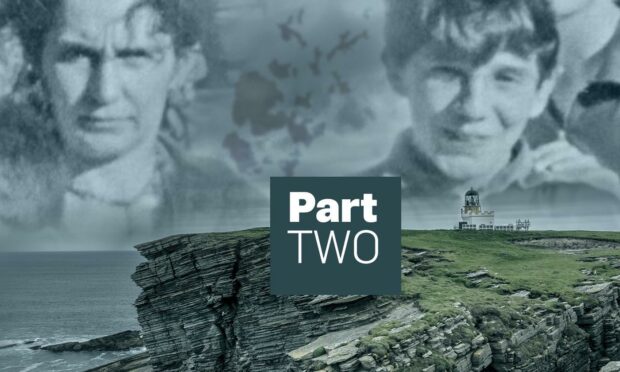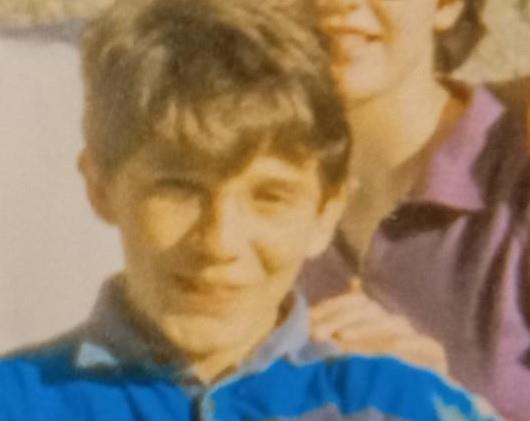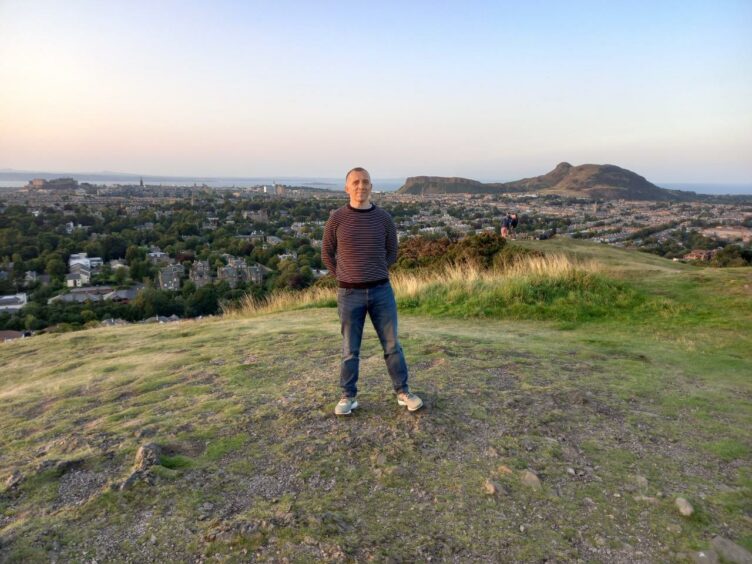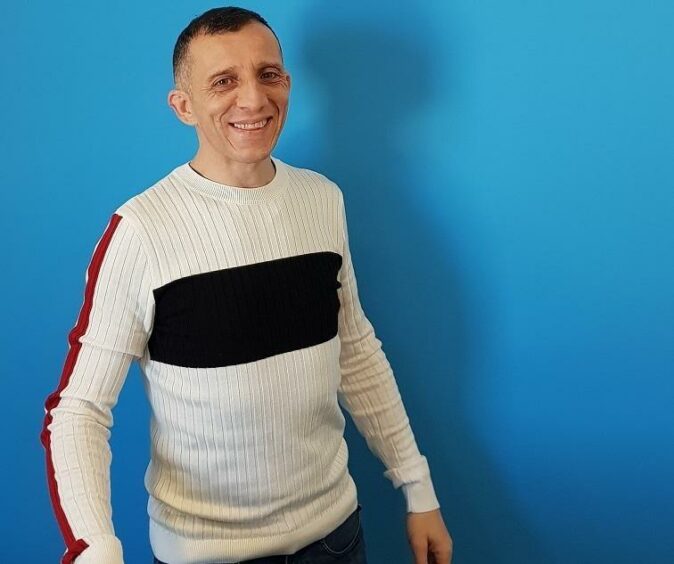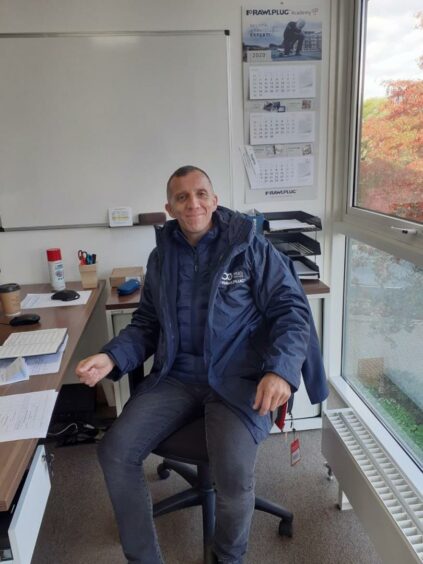Thirty years ago nine children from four families were torn from their beds by police and whisked away from their Orkney homes straight into care on the mainland with no explanation.
At the centre of the nightmare was the family known as ‘W’ on South Ronaldsay.
They were a large, dysfunctional family where the father was known to abuse his 15 children.
But that day in February 1991, the authorities weren’t looking for him.
Hounding
Two social workers had decided that Satanic Ritual Abuse (SRA) was at the bottom of it all, and were hounding many innocent people for proof.
Seven of the younger Willsher children had already been in and out of care.
Traumatised, vulnerable and with a complete lack of understanding, two of the W children had blurted words the social workers pounced on as proof of their SRA theory, thus prompting the cascade of events that dark winter morning.
Henry Willsher was their sibling, also taken into care that day.
His new book Whatever happened to the W children? aims to shed light on the shocking episode and his own painful journey into adulthood to eventually find peace and contentment.
Henry was disruptive, dysfunctional and despairing, never having known ‘normal’ family life.
Case falls apart
After the SRA case fell apart, thrown out of court and utterly dismissed in a report by Lord Clyde, he returned home from October 1992 to February 1993.
His mother was struggling to cope.
His father was in prison and did not get out until 1995.
The youngest six siblings were still in care, with foster parents.
Things were hard for all the W children at this point and even worse for their mother, a pale shadow clinging to life after the two decades of hell she had endured at the hands of her husband.
Henry skipped school and was generally troublesome – hardly surprising given what he describes as the intense ‘friction, confusion and angst’ the family was going through.
Secretly he counted down the days until he could leave Orkney in 1994, though without a clue as to what he would do.
Charismatic professor
Careers Advice pushed him towards manual labour, but a ray of hope came in the form of a charismatic professor of criminology who turned up at the Willsher farm as part of his research into his book on moral panics and urban legends.
Henry found Dr Terry ‘Tel’ Tom from Portsmouth very cool, especially when Tel told him he was smart, and he wanted to offer him to stay with him in Portsmouth, the chance to improve his education, get some A levels and maybe go to university.
Tel was now the much-craved, new father-figure in Henry’s life- but he turned out to be a narcissist, setting Henry up for yet more abuse and patterns of behaviour which would end up spoiling everything he tried to do.
Mood swings
Tel’s mood swings and extreme behaviour disrupted Henry’s attempts to study as he started an intense co-dependent relationship with a girl, who, as it turned out had also been abused.
It wasn’t long before things went pear-shaped and Henry left and went to Brechin to stay with old family friends and supporters, Rev Morris and Jane McKenzie.
They had tried to help the W family for years and were now traumatised by the SRA case, where Morris had been accused of playing an outlandish and ludicrous role in non-existent Satanic rituals.
Somehow Henry managed to carry on studying and get a place at the University of Essex in 1998.
Student politics
There he got involved in student union politics which ultimately also went wrong, and Henry withdrew from campus life.
Now with a serious drug habit, no money and no prospects, Henry tried to kill himself.
When it didn’t work, he took various jobs but got himself into scrape after scrape and on a downward spiral into poverty.
“I started a bad habit: living in a perpetual state of poverty. As long as I had enough money for the rent and weed, I was happy and that meant there was no underpinning incentive to do better.”
Apathy
But Henry, always an outsider and self-described ‘social freak’ was becoming more and more isolated, viewed as a “hothead and strange person to deal with”, sinking into apathy.
There were failed attempts to reconcile with some of his brothers, another failed relationship with a girl to whom he had told a pack of lies about his background.
Over the next few years he reached rock bottom, full of hatred and resentment, consumed by what he imagined to be the judgement of others and still with a drug habit.
But somehow Henry managed to claw himself out of his physical and mental abyss.
Awakening
He describes 2014 as the year of his spiritual awakening, being given the key to changing his life and overcoming the numberless adversities life had thrown at him.
It started when he had to move flat, and decided to be honest about himself and his background with his new flat mates.
The honesty helped him make new friendships, and through one of them, he came across a book which changed his life, A New Earth by Ekhart Tolle.
He said: “The book proclaimed controlling your thoughts was a way of controlling your life.
“What stuck in my head was the notion of controlling your thoughts. They just happened surely.
Changing thought patterns
“It explained how we are controlled by thought patterns and how we can, over time, consciously change these.
“This leads to changing your perception of the world and your chances of making things happen.
“I realise this book or idea may not resonate with some, but for me it was the catalyst to the process of making my life a happier one.
“Something in me felt sick to death of the continuous daydreaming and trying to avoid growing up.”
Henry started going to the gym and working on his capacity to concentrate.
Working hard to change
“I worked harder to get along with people, held my tongue and saw myself in the people I once hated.”
He was nice when he didn’t have to be, listened when he didn’t have to and responded to people when he couldn’t really be bothered.
“There were years of negative thinking patterns engrained in the synaptic pathways of my brain and they changed slowly.
“I noticed the absurdity of my thought patterns. I started meditating and learned the art of gratitude.
“My life started to change for the better and has done since.”
With his newfound peace and contentment, Henry now manages people in a mechanical engineering firm.
He has come to terms with the failings of the professionals who caused so much misery with the Satanic Ritual Abuse claims – “they were just trying to to do a job. People were just following orders.”
He overcame the resentment towards his mother and forgave her.
Henry says he held a grudge against his father for some years, yet, paradoxically, was attracted to charismatic narcissistic men, who would emotionally browbeat, such as the Dr Terry.
And the rest of the W family?
The two youngest remained in foster care and have no contact with the rest of the family.
Henry says the others have all struggled with life, have had drug problems, have continued to be abused or have become abusers themselves.
“Some of us have moved closer together, while others are further apart, most still carrying some burden of pain-body, suffering and striving to be emotionally mature.
“But above all I’ve learned that life is not meant to be easy, it’s meant to challenge you to evolve, develop and mature into a wise, collaborative, co-operative and compassionate person.
“Life is a work in progress and learning to consciously experience the journey.”
